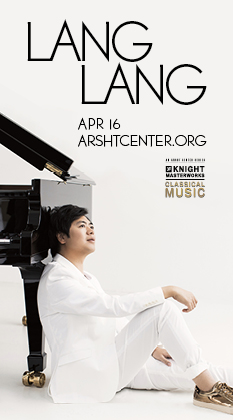Composer stokes the flames of revolution with Castro opera

During a recent rehearsal of Revolution of Forms, his opera-in-progress on the Cuban revolution, the composer Anthony Davis made what he thought was an excellent suggestion.
When the chorus at the University of Miami sings Todos con Fidel, “I had this idea of having the audience participate,” he recalled in an interview. Cuban-born members of the chorus swiftly wiped that notion from his mind. This is Miami, they told him. You can’t do that.
Politically fraught subjects are something of a specialty for Davis, one of the nation’s best-known composers of contemporary opera, who will discuss his work Monday at the university and, on Tuesday, join in a performance of excerpts, an event organized by Alan Johnson, music director of the Frost Opera Theater.
Among Davis’s operas are Malcolm X, premiered in 1986 by the New York City Opera, and Amistad, premiered by the Lyric Opera of Chicago in 1997, as well as works on the kidnapping of Patty Hearst and the plight of Native Americans.
“I’m always drawn to things that are ambiguous,” said Davis, who prefers subjects to which people bring strongly held opinions— multi-layered topics that can best be approached through the abstract medium of music. “Opera is necessarily not realistic, and you can express things about the underlying nature of what’s going on. I’ve always been fascinated by the revolution, and I love Cuban music.”
His new opera tells the true story of the attempt by idealistic architects to build an arts complex in Havana, just as the revolution is falling under the grim, gray grip of Soviet-style communism. The idea came to him from the work’s librettist and producer, Charles Koppelman, who will join in the discussion on Monday. Also working on the opera are the Cuban-born jazz composer Dafnis Prieto, and, on the libretto, the writer Alma Guillermoprieto. The music relies heavily on Afro-Cuban forms such as danzon, son and rhumba.
The opera begins in 1961 with Castro and Che Guevara playing a round of golf at the old Havana Country Club, where they hatch the idea of using the site to construct an arts complex. From there, the plot shifts to the opera’s main character, the architect Ricardo Porro, as he struggles to build sensuous, daringly designed buildings in a society increasingly dominated by Soviet aesthetic and political values.
In one climactic scene to be performed Tuesday, Castro’s chief engineer criticizes the architect’s work, using heavy-handed Marxist rhetoric. Porro, not helping himself, responds with sarcasm, making clear his contempt for the engineer’s use of revolutionary rhetoric to promote conformist views. The chorus chants revolutionary slogans. As Davis describes it, the fugal music builds in power, with rhythmic devices ratcheting up the dramatic tension until Castro’s engineer smashes the model.
An author and screenwriter in the San Francisco Bay area, Koppelman said he came up with the idea after reading an article about the failed art schools project in the San Francisco Chronicle. “The images just grabbed me,” he said. He cast about for the best way to dramatize the story and came up with the idea of an opera. He went looking for a composer, inquiring among musicians at the Brooklyn Academy of Music, and found Davis.
Koppelman and Davis, who serves as professor of music at the University of California at San Diego, will discuss their work Monday night as part of the University of Miami Frost School of Music Stamps Distinguished Visitors Series. A performance of excerpts from Revolution of Forms and Malcolm X will be held Tuesday evening.
The new opera is about one-third complete. Koppelman said the team is looking for another institution to serve as co-commissioner, joining the Lincoln Center Festival and the Palau des Artes in Valencia, Spain, who have agreed in principle to back the project but lack the funds to underwrite it by themselves. In the meantime, Davis and Koppelman will keep working on the opera, with their public performance Tuesday offering an opportunity to try out Revolution of Forms, as a work in progress. “It’s still very plastic, very fluid,” Koppelman said. “This is only the second time we’ve worked on the material with the singers.”
 One reason Alan Johnson brings contemporary operas to the school, is to show students the broader career possibilities open to singers willing to sing roles other than Violetta or Rodolfo. “We want to see them become as knowledgeable about contemporary works as they are about Verdi and Puccini,” Johnson said. “It’s been an opportunity for us to educate students as to the varieties of employment and options they’ll have as singers in new works.”
One reason Alan Johnson brings contemporary operas to the school, is to show students the broader career possibilities open to singers willing to sing roles other than Violetta or Rodolfo. “We want to see them become as knowledgeable about contemporary works as they are about Verdi and Puccini,” Johnson said. “It’s been an opportunity for us to educate students as to the varieties of employment and options they’ll have as singers in new works.”
Monday at 8 p.m. Anthony Davis and Charles Koppelman will discuss their new opera at the L. Austin Weeks Center for Recording and Performance at the Universuity of Miami. Tuesday at 8 p.m. excerpts will be performed of Revolution of Forms at Gusman Concert Hall, in Coral Gables.
http://www6.miami.edu/UMH/CDA/CalendarRedesign/Cal/1,1151,NW-04-03-2009;16,00.html
David Fleshler is a staff writer for the South Florida Sun-Sentinel, where he has reviewed classical music for the past two years. He plays the violin and grew up in a musical family, with both parents playing in the Buffalo Philharmonic Orchestra.
Posted in Articles
One Response to “Composer stokes the flames of revolution with Castro opera”
Leave a Comment
Fri Mar 27, 2009
at 4:33 pm
1 Comment






Posted Apr 25, 2009 at 8:11 pm by Humberto Capiro
So what happened with Gonzalo Rubalcaba? and how come some anglo Anthony Davis is doing this very latio work? Not happy here!